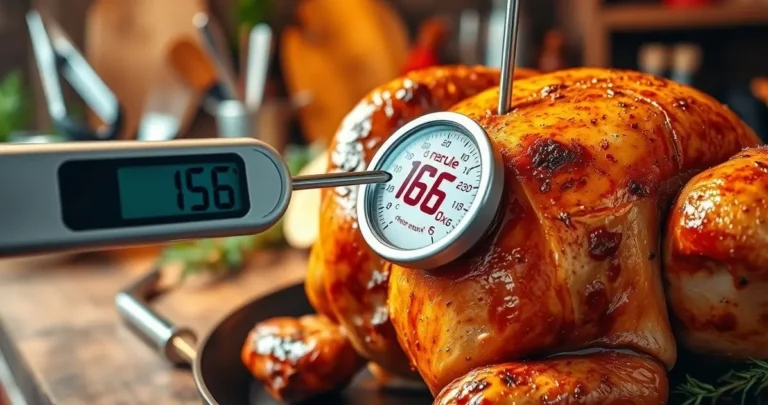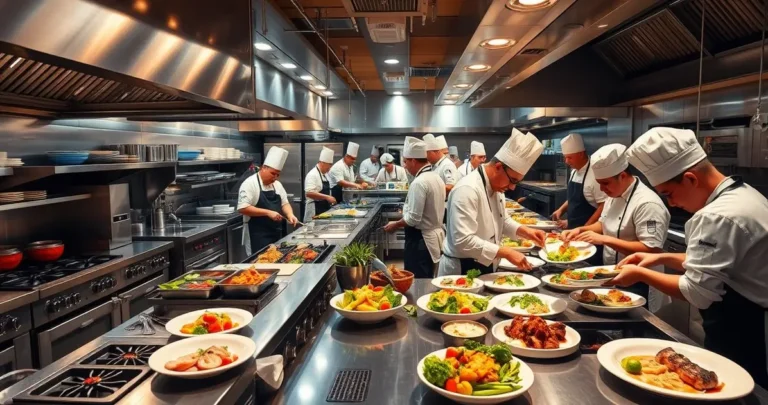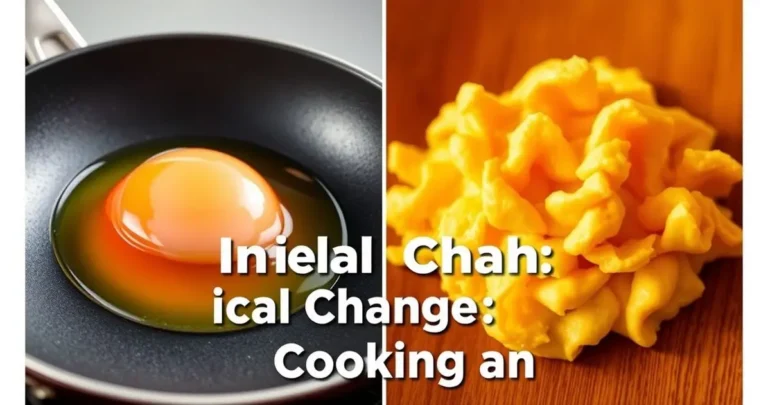Cooking tools and equipment are essential for preparing delicious meals. They range from basic utensils like knives and spoons to larger appliances such as ovens and mixers, each serving a unique purpose in the culinary process.
What are the tools and equipment in cooking
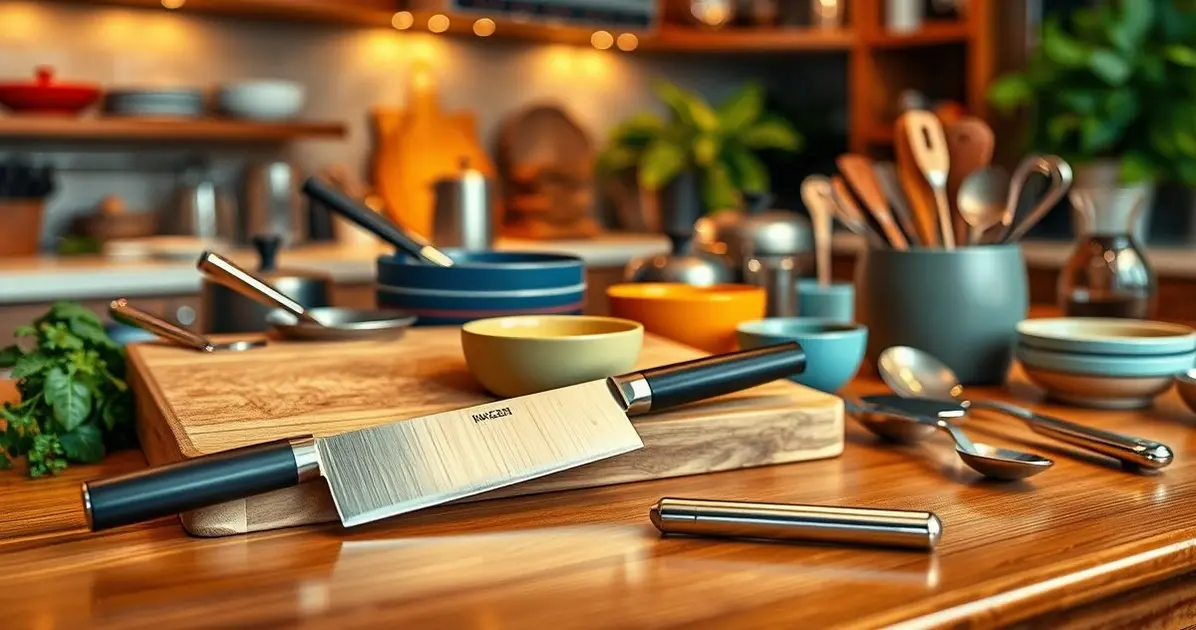
The world of cooking is filled with diverse tools and equipment. Essential items like pots, knives, and measuring cups not only make cooking efficient but also enhance the overall culinary experience, helping chefs to create both simple and complex dishes.
Essential Kitchen Gadgets for Every Cook
Essential kitchen gadgets for every cook are the fundamental tools that enhance the cooking experience and improve efficiency in the kitchen. These gadgets help streamline food preparation, making cooking more enjoyable and less time-consuming. Here’s a list of must-have kitchen gadgets that every cook should consider:
1. Chef’s Knife: A high-quality chef’s knife is indispensable for any kitchen:
- Versatility: Ideal for chopping, slicing, and dicing a variety of ingredients, a good chef’s knife is essential for efficient food prep.
- Comfortable Grip: Choose a knife that feels comfortable in your hand, as you will be using it frequently.
2. Cutting Board: A sturdy cutting board provides a safe surface for food preparation:
- Material Options: Choose from wood, plastic, or bamboo, each offering different benefits in terms of hygiene and knife preservation.
- Size Variety: Having multiple sizes of cutting boards can help with different types of food prep tasks.
3. Measuring Cups and Spoons: Accurate measurements are crucial in cooking and baking:
- Dry and Liquid Measuring Cups: Use dry measuring cups for ingredients like flour and sugar, and liquid measuring cups for liquids like water and milk.
- Measuring Spoons: Essential for measuring smaller quantities of ingredients, such as spices and baking powder.
4. Mixing Bowls: Mixing bowls are vital for combining ingredients:
- Variety of Sizes: Invest in mixing bowls of different sizes to accommodate various tasks, from mixing batters to serving salads.
- Material Choices: Mixing bowls can be made from glass, stainless steel, or plastic, providing versatility for different cooking methods.
5. Whisks: Whisks are essential for mixing and incorporating air into ingredients:
- Types of Whisks: Different types of whisks, such as balloon whisks and flat whisks, are designed for specific tasks, from whipping cream to stirring sauces.
6. Spatulas and Turners: These tools are used for flipping, scraping, and serving food:
- Silicone Spatulas: Ideal for mixing and scraping bowls, as they are heat-resistant and gentle on cookware.
- Metal Turners: Perfect for flipping pancakes or burgers, providing a sturdy option for handling heavier foods.
7. Colanders and Strainers: Used for draining liquids from food:
- Colanders: Essential for draining pasta or rinsing vegetables, colanders are a must-have in any kitchen.
- Fine Mesh Strainers: Useful for straining sauces or stocks to achieve a smooth consistency.
In summary, essential kitchen gadgets for every cook include chef’s knives, cutting boards, measuring tools, mixing bowls, whisks, spatulas, and colanders. By equipping your kitchen with these fundamental tools, you can streamline your cooking process and create delicious meals with confidence.
Understanding the Purpose of Knives and Cutting Boards
Understanding the purpose of knives and cutting boards is fundamental for any cook, as these tools are essential for effective food preparation. Each tool serves a specific function that enhances efficiency and safety in the kitchen. Here’s a closer look at the roles of knives and cutting boards:
1. The Role of Knives: Knives are indispensable tools in the kitchen, used for various cutting tasks:
- Chef’s Knife: This versatile knife is the workhorse of the kitchen, ideal for chopping, slicing, and dicing a variety of ingredients, from vegetables to meats.
- Paring Knife: A small knife used for intricate tasks such as peeling fruits and vegetables or trimming herbs. Its precision makes it invaluable for detailed work.
- Serrated Knife: Perfect for slicing bread and soft fruits, the serrated edge allows for clean cuts without crushing the item being sliced.
2. The Role of Cutting Boards: Cutting boards provide a safe and stable surface for food preparation:
- Material Options: Cutting boards can be made from various materials, including wood, plastic, and bamboo. Each material has its benefits:
- Wood: Gentle on knife edges and aesthetically pleasing, wooden boards are great for cutting bread and vegetables.
- Plastic: Easy to sanitize and dishwasher safe, plastic cutting boards are ideal for raw meats and can be color-coded to prevent cross-contamination.
- Bamboo: A sustainable option that is lightweight and naturally antimicrobial, making it a safe choice for food preparation.
3. Importance of Using the Right Knife and Board: Using the appropriate knife and cutting board for specific tasks enhances efficiency and safety:
- Preventing Cross-Contamination: Using separate cutting boards for raw meats and vegetables helps prevent cross-contamination, ensuring food safety.
- Maintaining Knife Sharpness: Using the right cutting surface can help maintain the sharpness of knives. For example, using plastic or wood boards is gentler on knife edges compared to glass or stone surfaces.
4. Care and Maintenance: Proper care and maintenance of knives and cutting boards are essential for longevity:
- Knife Care: Regularly sharpen knives and store them safely to prevent damage and ensure they remain effective.
- Cutting Board Maintenance: Clean cutting boards thoroughly after each use and apply oil to wooden boards periodically to maintain their condition and prevent cracking.
In summary, understanding the purpose of knives and cutting boards is essential for effective cooking. Knives serve various cutting tasks, while cutting boards provide a safe surface for food preparation. By selecting the right tools and maintaining them properly, you can enhance your cooking efficiency and ensure food safety in your kitchen.
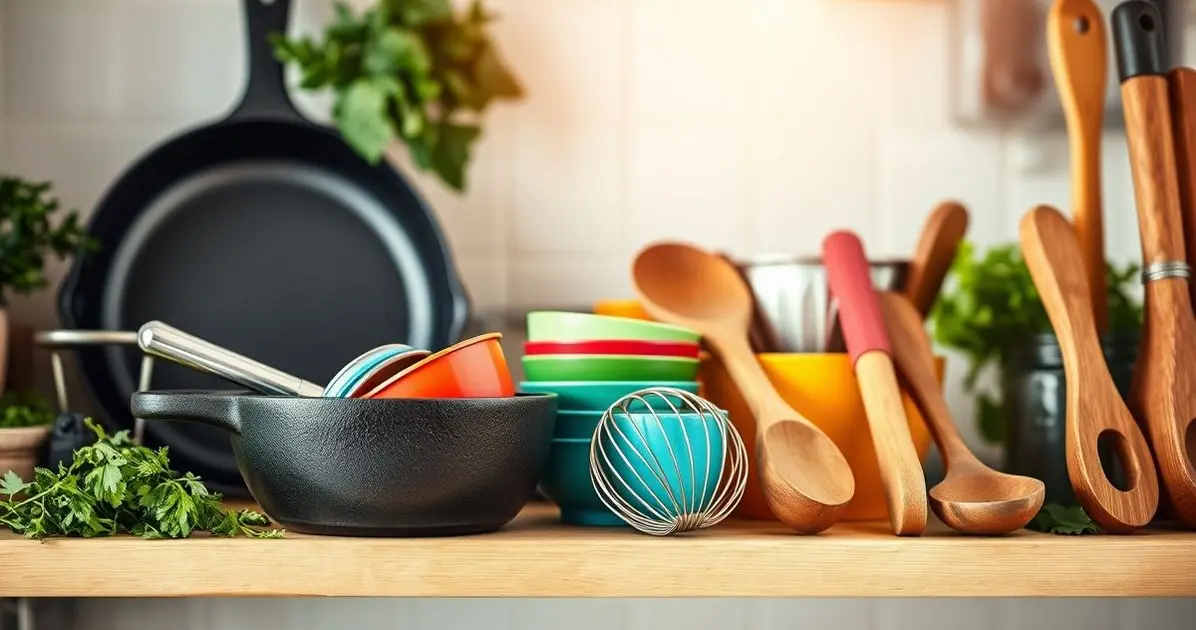
Specialized Tools for Simplifying Meal Prep
Specialized tools for simplifying meal prep are invaluable for home cooks looking to save time and enhance efficiency in the kitchen. These tools are designed to perform specific tasks that streamline the cooking process and make food preparation easier. Here’s a closer look at some of the most useful specialized tools:
1. Food Processor: A food processor is a versatile kitchen appliance that can chop, slice, shred, and puree ingredients quickly:
- Time-Saving: Food processors can significantly reduce the time spent on food prep tasks, making them ideal for busy cooks.
- Multiple Functions: With various attachments, food processors can handle a wide range of tasks, from making dough to preparing sauces.
2. Mandoline Slicer: A mandoline slicer is a handy tool for achieving uniform slices of fruits and vegetables:
- Precision Slicing: Mandolines allow for precise and consistent slicing, which is especially useful for salads, gratins, and garnishes.
- Adjustable Thickness: Many mandolines come with adjustable settings for different thicknesses, providing versatility in food preparation.
3. Spiralizer: A spiralizer is a fun and creative tool that transforms vegetables into spiral shapes, often referred to as “zoodles” (zucchini noodles):
- Healthy Alternatives: Spiralized vegetables can serve as low-carb pasta substitutes, making it easier to incorporate more vegetables into your diet.
- Creative Presentation: Spiralized vegetables add visual interest to dishes, making meals more appealing and exciting.
4. Immersion Blender: An immersion blender, also known as a hand blender, is perfect for blending soups, sauces, and smoothies directly in the pot:
- Convenience: This tool eliminates the need to transfer hot liquids to a traditional blender, reducing mess and saving time.
- Versatility: Immersion blenders can also be used for emulsifying dressings and whipping cream, making them a valuable addition to any kitchen.
5. Measuring Tools: Accurate measurements are crucial in cooking and baking, and specialized measuring tools can help:
- Digital Kitchen Scale: A digital kitchen scale ensures precise measurements for ingredients, especially useful for baking.
- Liquid Measuring Cups: These cups are designed with spouts for easy pouring and accurate measurement of liquids.
6. Specialty Baking Tools: If you enjoy baking, specialty tools can simplify the process:
- Silicone Baking Mats: These mats provide a non-stick surface for baking and are reusable, making them eco-friendly.
- Cookie Cutters: Metal cookie cutters come in various shapes and sizes, allowing for creative baking and presentation.
In summary, specialized tools for simplifying meal prep can greatly enhance your cooking experience by saving time and effort. Tools such as food processors, mandoline slicers, spiralizers, immersion blenders, and accurate measuring tools make food preparation more efficient and enjoyable. By incorporating these tools into your kitchen, you can streamline your cooking process and explore new culinary possibilities.
Bakeware Essentials and Importance of Measuring Tools
Bakeware essentials and the importance of measuring tools are key components in achieving successful baking results. Understanding which bakeware to use and how to measure ingredients accurately can make a significant difference in the quality of your baked goods. Here’s a closer look at these important aspects:
1. Bakeware Essentials: Having the right bakeware is crucial for various baking tasks:
- Cake Pans: Essential for baking cakes, these pans come in various shapes and sizes, including round, square, and rectangular. Choose non-stick or well-seasoned pans for easy release.
- Muffin Tins: Muffin tins are perfect for baking muffins, cupcakes, and individual servings. Silicone or metal options are available, each offering different benefits.
- Cookie Sheets: Flat cookie sheets are ideal for baking cookies and roasting vegetables. Look for heavy-duty, non-stick options for best results.
- Loaf Pans: Loaf pans are essential for baking bread and meatloaf. Choose pans made from metal or glass for even baking.
- Pie Dishes: A good pie dish is necessary for baking pies and quiches. Glass or ceramic options allow for even cooking and easy monitoring of crust doneness.
2. Importance of Measuring Tools: Accurate measurements are critical in baking, where precision is key:
- Measuring Cups: Use dry measuring cups for ingredients like flour and sugar, and liquid measuring cups for liquids. Accurate measurements ensure that your recipes turn out as intended.
- Measuring Spoons: Essential for measuring smaller quantities of ingredients such as baking powder, spices, and extracts, measuring spoons help maintain recipe accuracy.
- Digital Kitchen Scale: A digital kitchen scale provides precise measurements for ingredients, especially important in baking where weight can impact the outcome.
3. The Impact of Proper Bakeware and Measuring: Using the right bakeware and measuring tools can lead to better baking results:
- Even Baking: Proper bakeware ensures even heat distribution, preventing overcooked or undercooked spots in baked goods.
- Consistent Results: Accurate measurements lead to consistent baking results, allowing you to replicate successful recipes time and again.
4. Tips for Choosing Bakeware and Measuring Tools: When selecting bakeware and measuring tools, consider the following:
- Material Quality: Choose bakeware made from high-quality materials that provide durability and even heating, such as stainless steel, glass, or heavy-duty aluminum.
- Ease of Cleaning: Look for non-stick options or materials that are easy to clean to simplify post-baking cleanup.
- Read Reviews: Research brands and read customer reviews to find reliable bakeware and measuring tools that meet your needs.
In summary, bakeware essentials and accurate measuring tools are vital for successful baking. By equipping your kitchen with the right tools and understanding their importance, you can enhance your baking experience and achieve delicious results in your culinary creations.
Conclusion
In conclusion, understanding the essentials of bakeware and the importance of accurate measuring tools is crucial for achieving success in baking.
The right bakeware—such as cake pans, muffin tins, cookie sheets, and loaf pans—ensures even cooking and optimal results, while high-quality materials enhance durability and performance.
Accurate measurements are equally important, as they can significantly impact the outcome of your baked goods. Using proper measuring cups, spoons, and a digital kitchen scale allows for precise ingredient quantities, leading to consistent and delicious results.
By investing in quality bakeware and measuring tools, and by following best practices for their use, you can elevate your baking skills and create a wide range of delightful treats.
Embracing these fundamentals not only enhances the quality of your baked goods but also makes the baking process more enjoyable and rewarding.
Ultimately, the combination of the right tools and techniques empowers you to explore your creativity in the kitchen, ensuring that every baking endeavor is a success.
FAQ – Frequently Asked Questions about Bakeware and Measuring Tools
What types of bakeware are essential for home baking?
Essential bakeware includes cake pans, muffin tins, cookie sheets, loaf pans, and pie dishes, each serving specific baking needs.
Why is it important to use the right measuring tools in baking?
Accurate measurements are crucial in baking because they ensure consistent results and help replicate successful recipes.
What materials should I look for in bakeware?
Look for high-quality materials such as stainless steel, glass, or heavy-duty aluminum for durability and even heating.
How should I clean my bakeware?
Most bakeware can be cleaned with warm soapy water. Non-stick options should be cleaned with gentle sponges to avoid scratching.
What is the best way to measure dry ingredients?
Use dry measuring cups for ingredients like flour and sugar, filling them without packing down and leveling off with a straight edge.
Can I use liquid measuring cups for dry ingredients?
No, liquid measuring cups are designed for liquids. Use dry measuring cups for dry ingredients to ensure accuracy in your recipes.
See more
Discover plenty of easy and delicious recipes you can make at home, from hearty dinners to indulgent desserts and wholesome breakfasts.


